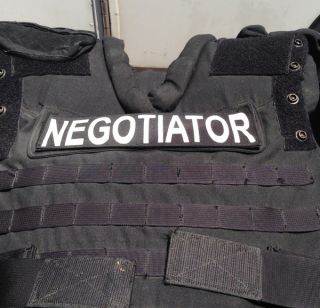What's Happening in Conflict Resolution [09.22.15]
![]()
Why You Should Make a Very Precise Offer When You’re Negotiating
...Adam Galinsky and Maurice Schweitzer, business-school professors at Columbia and Wharton, respectively, have done extensive research on negotiation tactics and the psychology behind them. Here are 11 pieces of advice from their book that can help make anyone a better negotiator.
Meet Face-to-Face — Usually
Meeting with someone in person strengthens the relationship and increases trust. But it’s only helpful when an interaction is at least partially cooperative, or still up for grabs. When two individuals feel strongly competitive, an in-person meeting tends to only heighten their feelings of animosity toward each other. In those cases, email might be better.
Understand the Difference Between Perspective-Taking and Empathy
Trying to understand what other people are thinking helps you propose solutions they’re more likely to accept. You can creatively craft deals that meet both parties’ interests. The authors have found that when experimental participants are explicitly told to use perspective-taking during a negotiation, they expand the pie and get themselves a larger slice of it. Contrast this with empathy, however, which means actually feelingthe other person’s emotions — when you focus on empathizing with your counterpart, it makes you more likely to give in too much.
Read more from NYMag.com [HERE].
#RenoACR15: Crisis Negotiation Skills; Problem Solving For One- Conflict Coaching; Health Care Conflict Management
This year’s Association for Conflict Resolution (ACR) national conference features more than 120 speakers on diverse conflict resolution topics in over 75 sessions. Join more than 400 other conflict resolution practitioners this October in Reno, Nevada from October 7-10.
Here is a brief glimpse of two of the many exciting sessions that are being offered:
Learning the Skills of Crisis & Hostage Negotiators
Jeff Thompson, Detective & Hostage Negotiation Team Member, NYPD
Problem Solving for One: Conflict Coaching and ADR Innovations
Alan Tidwell, Professor, School of Foreign Service, Georgetown University
Daniel Rainey, Chief of Staff, National Mediation Board
Overview:
This session provides participants with an overview of Problem Solving for 1 (PS1), most frequently cited as a precursor to conflict coaching. In the workplace, PS1 is being used to help people reduce the negative consequences of conflict. PS1 has also spawned other innovations such as computer based software that addresses both interpersonal conflict and provides treatment for mild depression. Family Dispute Resolution for one is an Australian innovation that builds on PS1, providing assistance in addressing family disputes. Uses of PS1 from the workplace to the Space Station will be discussed, and PS1 techniques will be demonstrated with audience participation. NB. Proposed Length This could be done as a short (3 hour) session with mostly demonstrations) or as a full day session with hands-on work with the participants.
Read more: http://reno.acrnet.org/15
Conflict Management in Health Care: Opportunities for Conflict Resolution Specialists

Paul Charlton, MD, Resident Physician, University of Washington
Nan Cochran, MD, Associate Professor, Geisel School of Medicine at Dartmouth
Register for the conference [HERE]
Call for partnership in peer mediation
Rotary World Peace Conference
Job posting: Program Coordinator/Mediator Domestic Court Services
Job Posting: Director of Education and Training Bethel College
FMCS Institute Mediation Skills Course - Open for Registration
FMCS Institute Becoming a Labor Arbitrator Course- Open for Registr...
INVITATION: Mediators’ Lunch
About
@ADRHub Tweets
© 2025 Created by ADRhub.com - Creighton NCR.
Powered by
![]()


You need to be a member of ADRhub - Creighton NCR to add comments!
Join ADRhub - Creighton NCR